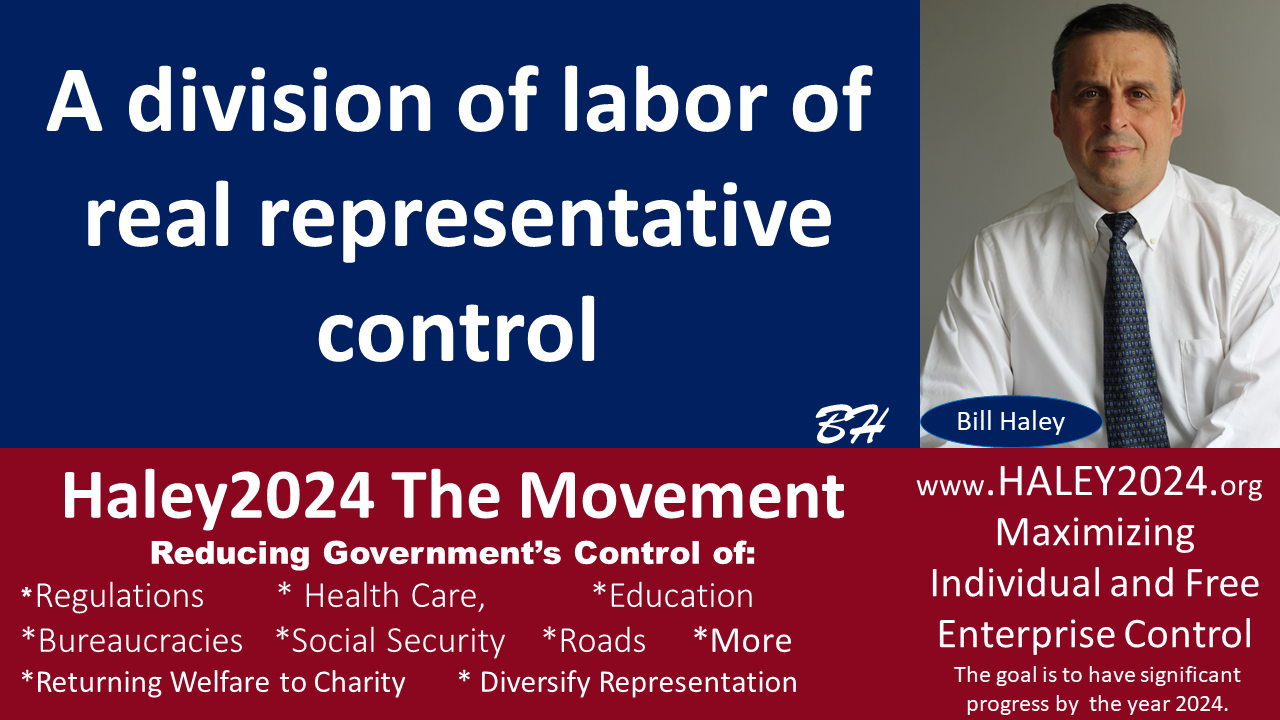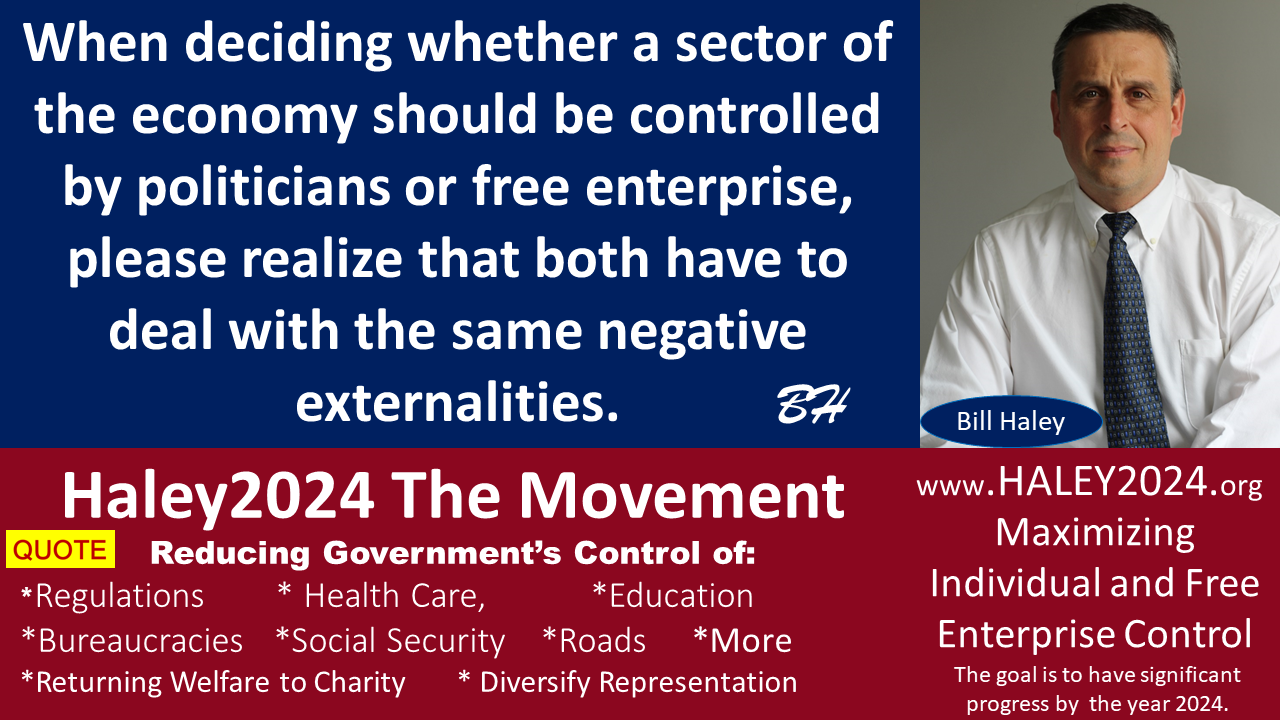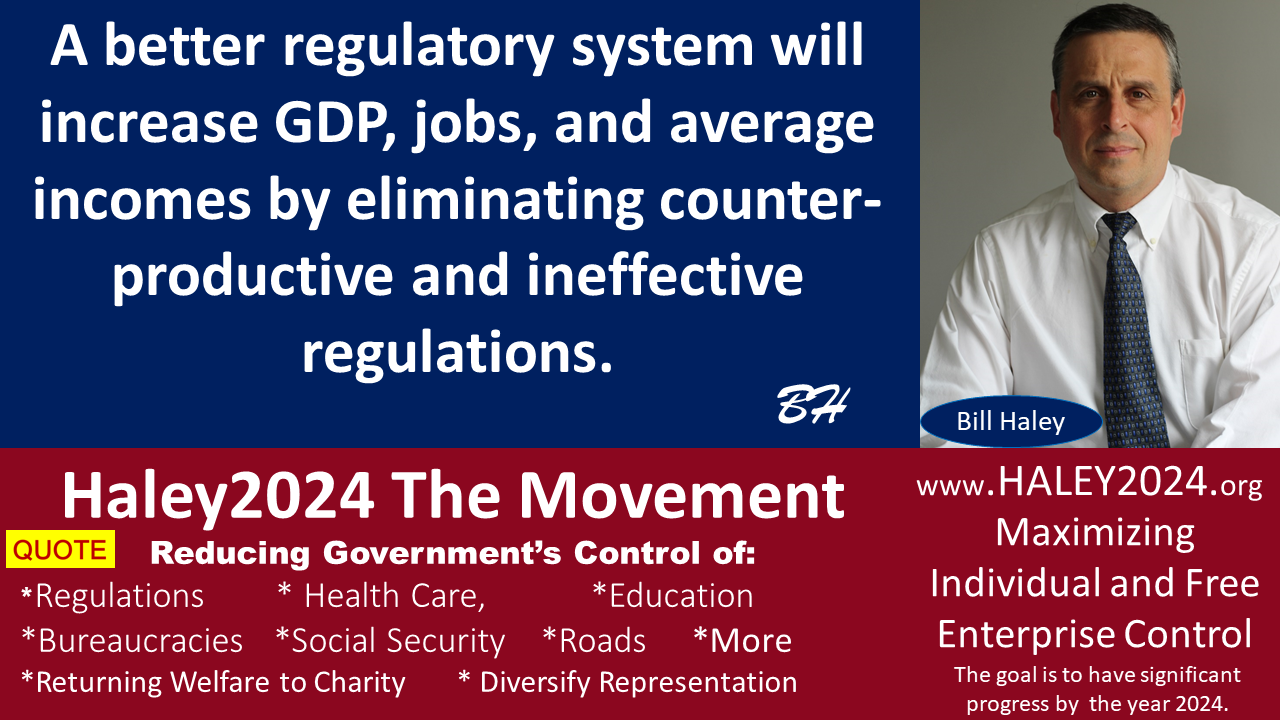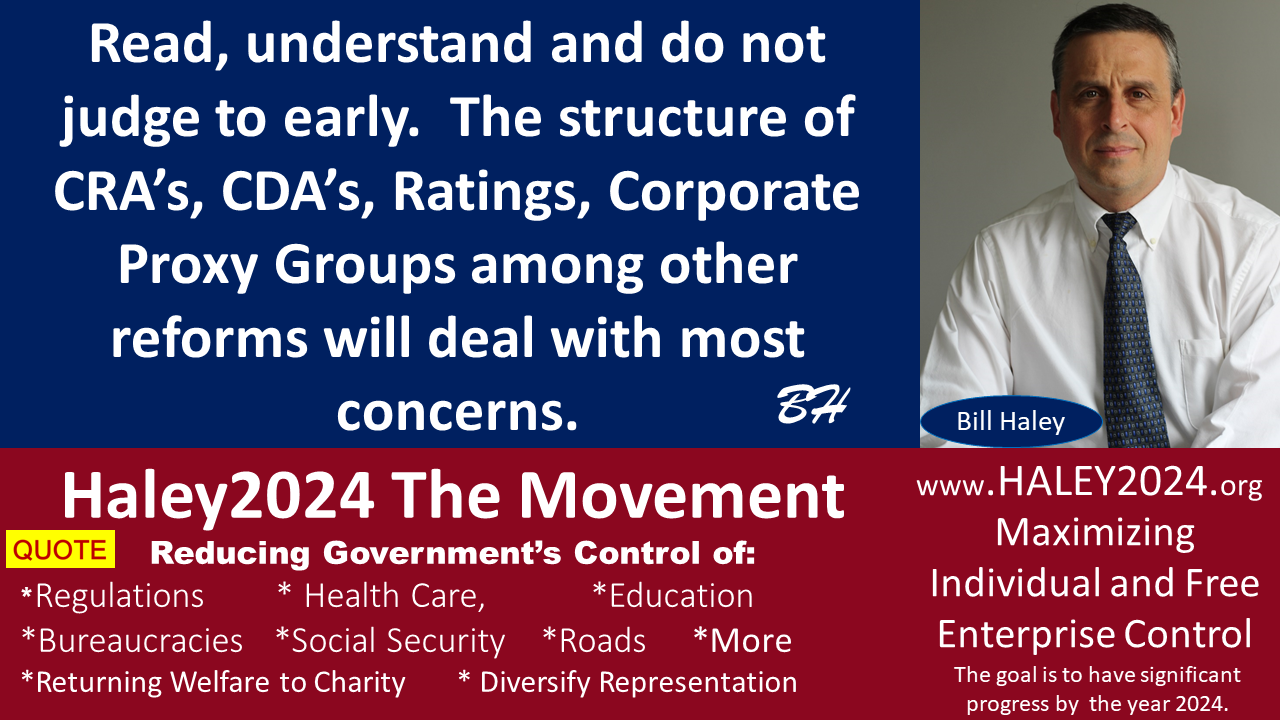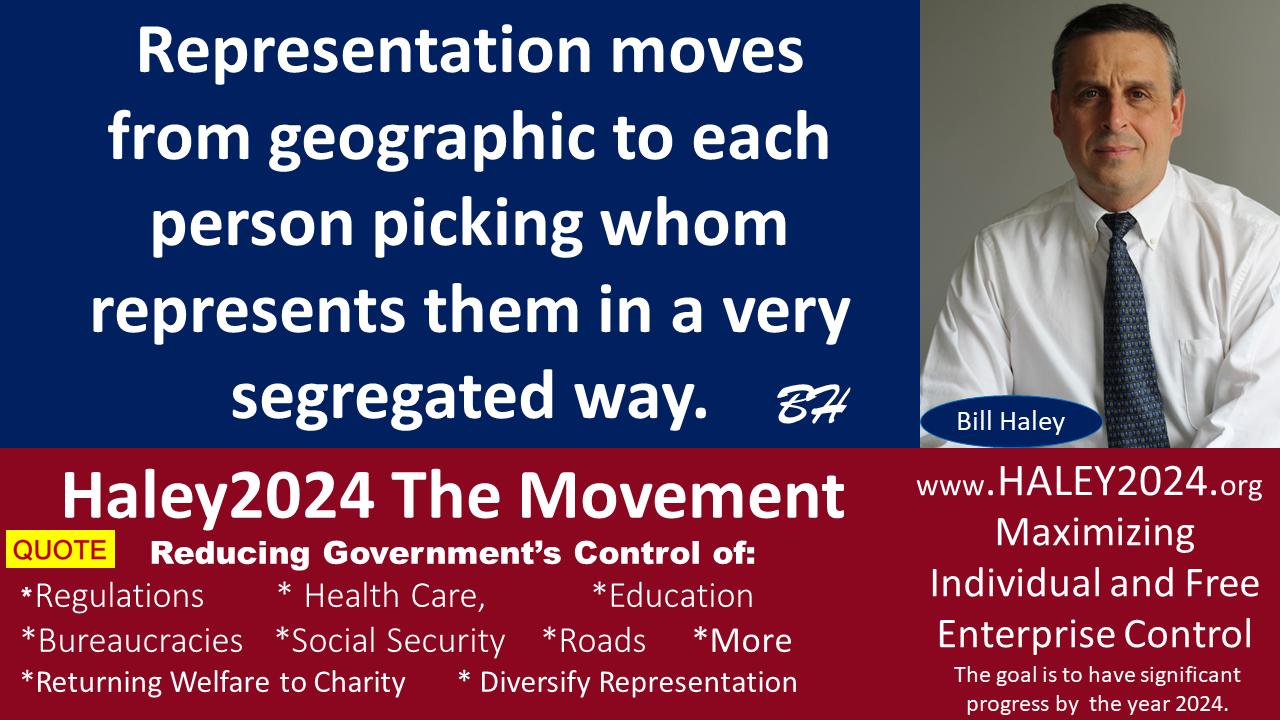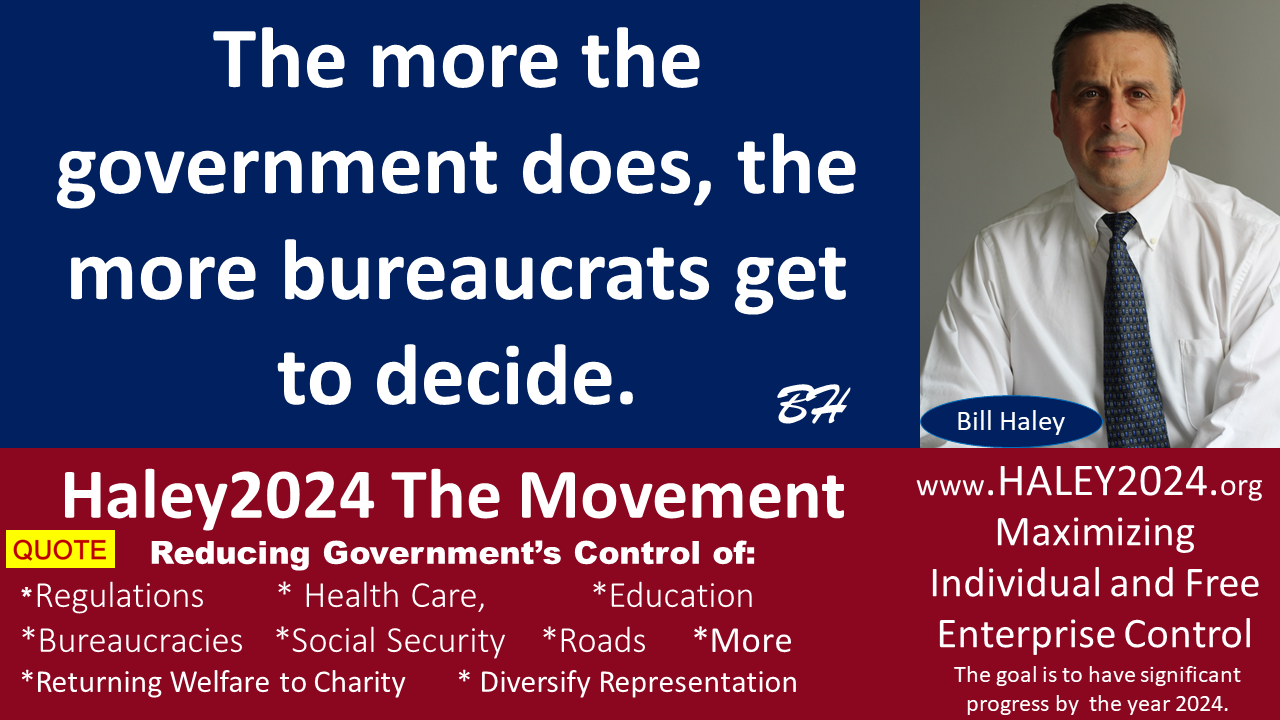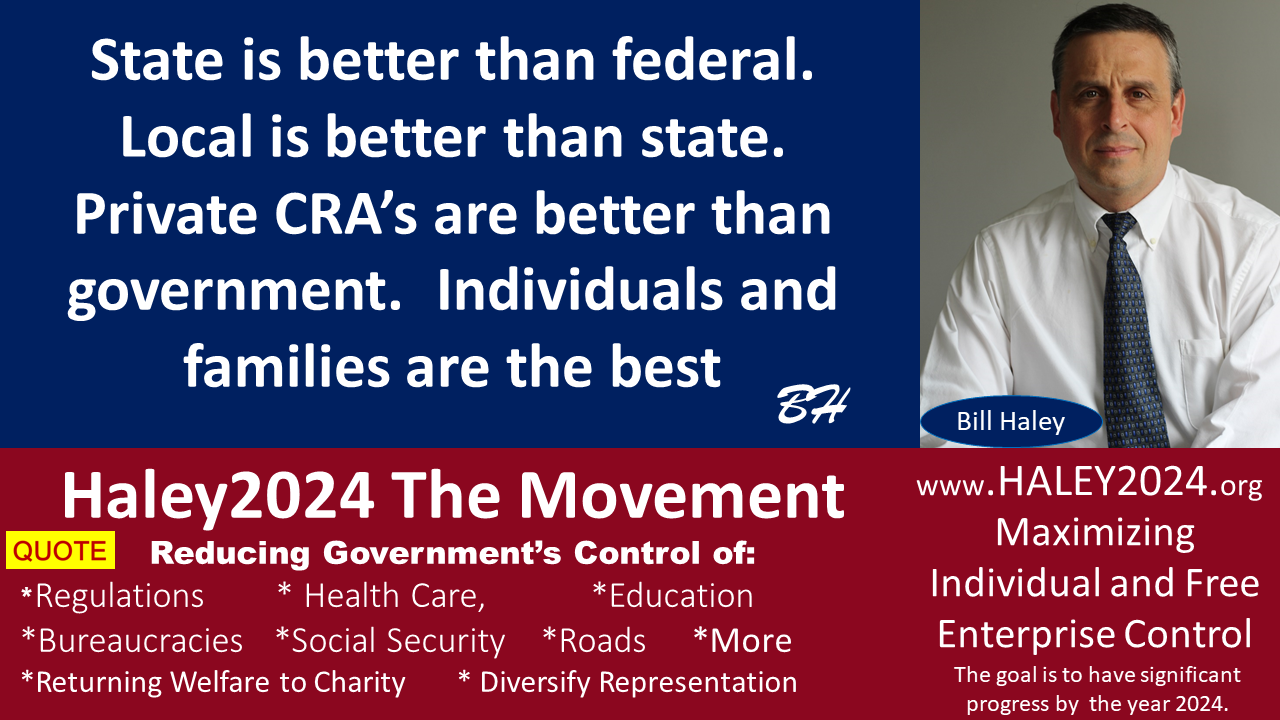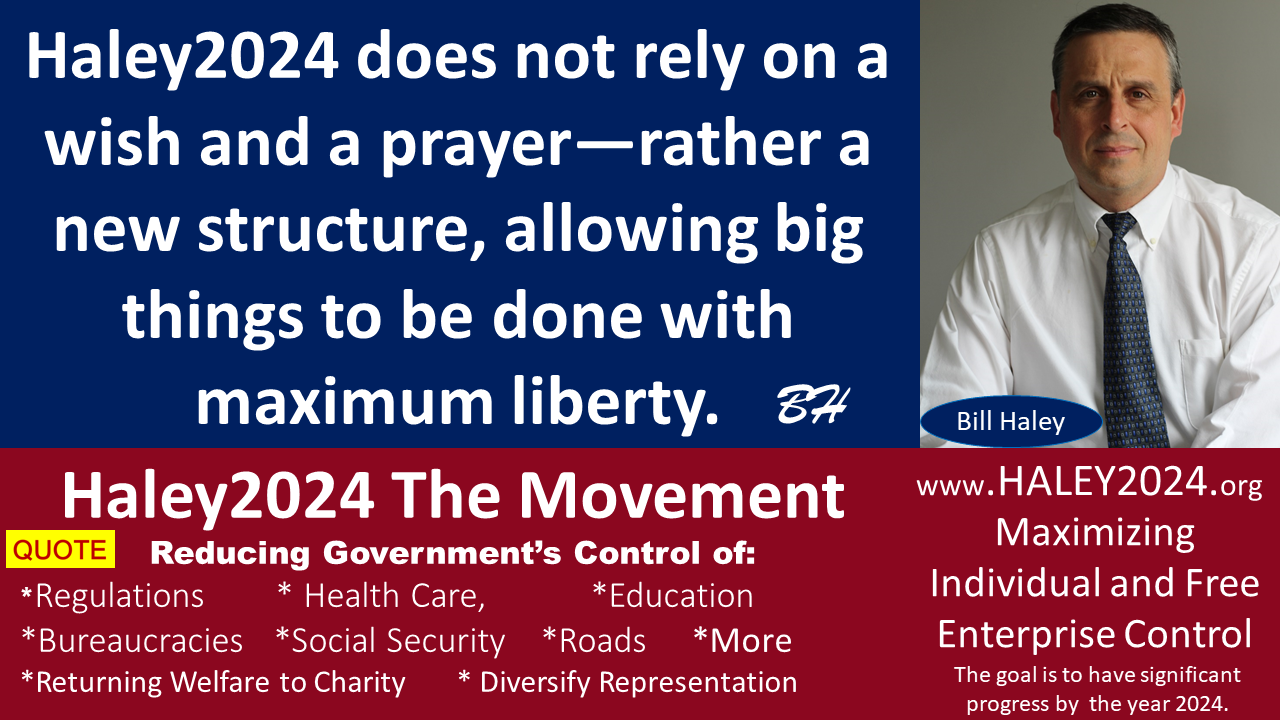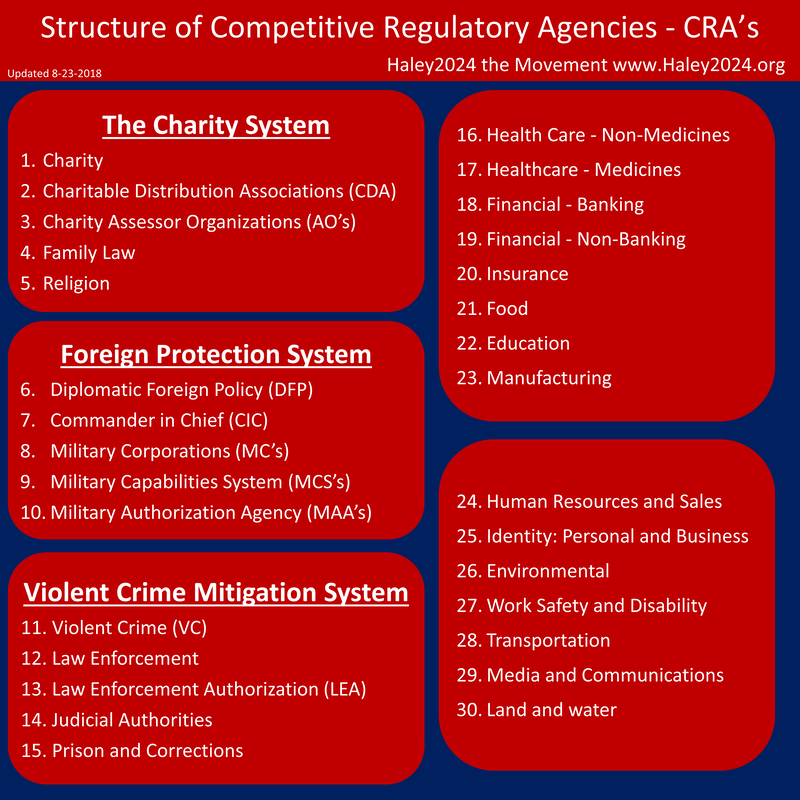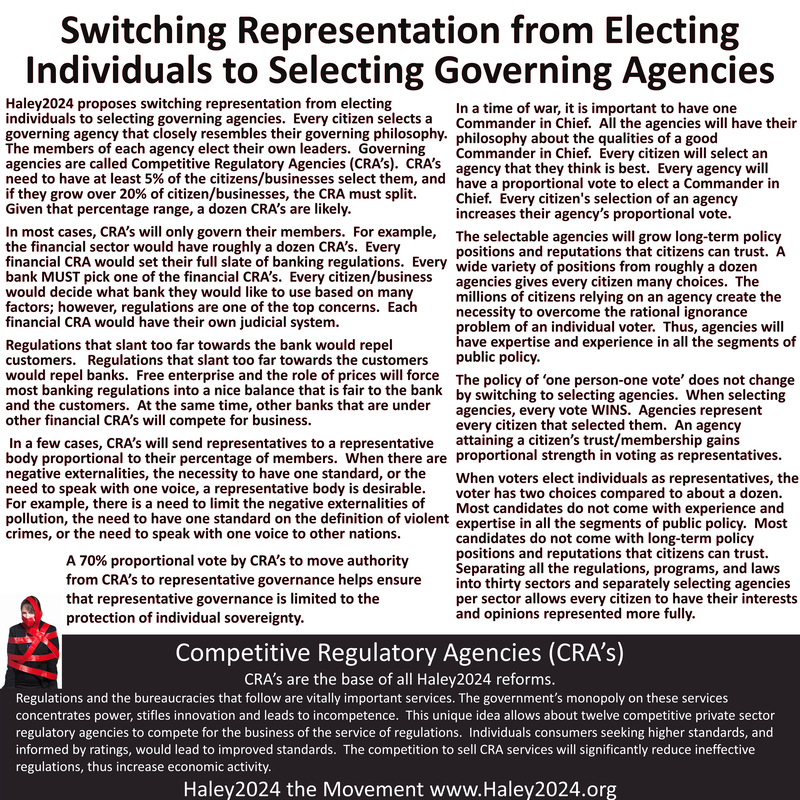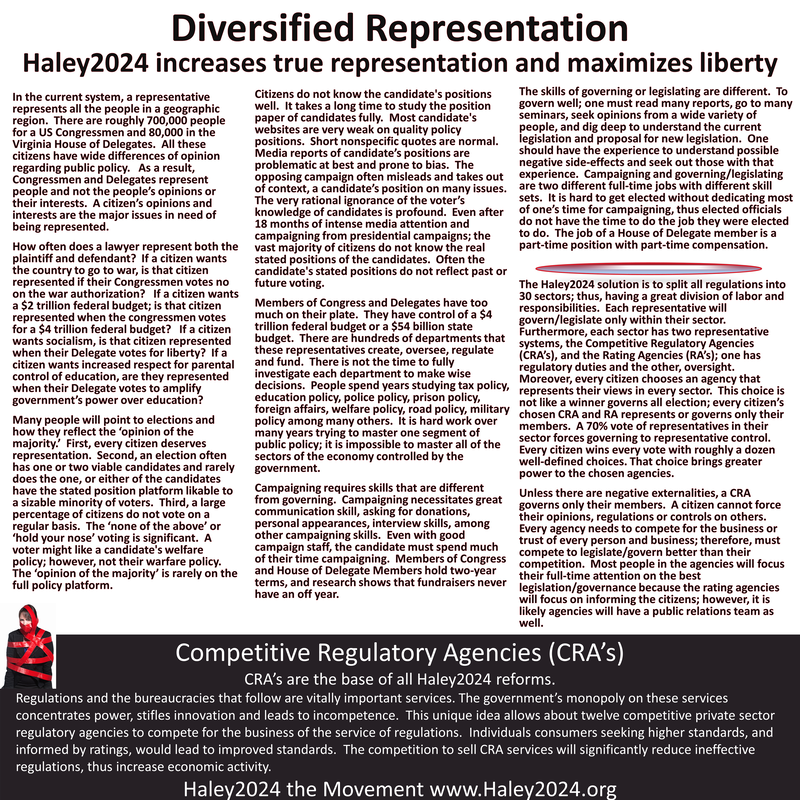| Haley2024 proposes switching representation from electing individuals to selecting governing agencies. Every citizen selects a governing agency that closely resembles their governing philosophy. The members of each agency elect their own leaders. Governing agencies are called Competitive Regulatory Agencies (CRA’s). CRA’s need to have at least 5% of the citizens/businesses select them, and if they grow over 20% of citizen/businesses, the CRA must split. Given that percentage range, a dozen CRA’s are likely. |
| In most cases, CRA’s will only govern their members. For example, the financial sector would have roughly a dozen CRA’s. Every financial CRA would set their full slate of banking regulations. Every bank MUST pick one of the financial CRA’s. Every citizen/business would decide what bank they would like to use based on many factors; however, regulations are one of the top concerns. Each financial CRA would have their own judicial system. |
| Regulations that slant too far towards the bank would repel customers. Regulations that slant too far towards the customers would repel banks. Free enterprise and the role of prices will force most banking regulations into a nice balance that is fair to the bank and the customers. At the same time, other banks that are under other financial CRA’s will compete for business. |
| In a few cases, CRA’s will send representatives to a representative body proportional to their percentage of members. When there are negative externalities, the necessity to have one standard, or the need to speak with one voice, a representative body is desirable. For example, there is a need to limit the negative externalities of pollution, the need to have one standard on the definition of violent crimes, or the need to speak with one voice to other nations. |
| In a time of war, it is important to have one Commander in Chief. All the agencies will have their philosophy about the qualities of a good Commander in Chief. Every citizen will select an agency that they think is best. Every agency will have a proportional vote to elect a Commander in Chief. Every citizen's selection of an agency increases their agency’s proportional vote. |
| The selectable agencies will grow long-term policy positions and reputations that citizens can trust. A wide variety of positions from roughly a dozen agencies gives every citizen many choices. The millions of citizens relying on an agency create the necessity to overcome the rational ignorance problem of an individual voter. Thus, agencies will have expertise and experience in all the segments of public policy. |
| When voters elect individuals as representatives, the voter has two choices compared to about a dozen. Most candidates do not come with experience and expertise in all the segments of public policy. Most candidates do not come with long-term policy positions and reputations that citizens can trust. Separating all the regulations, programs, and laws into thirty sectors and separately selecting agencies per sector allows every citizen to have their interests and opinions represented more fully. |
